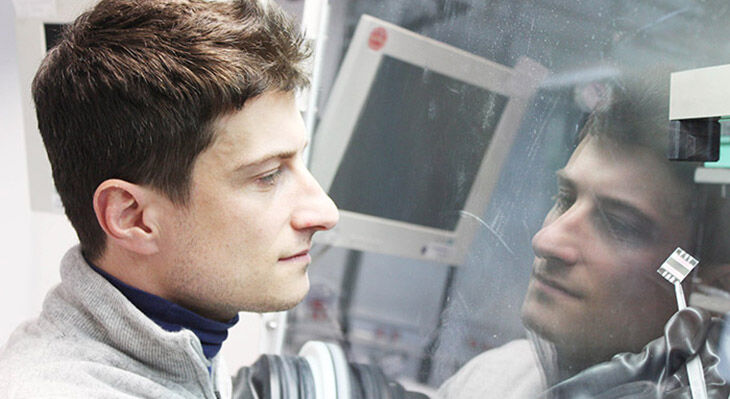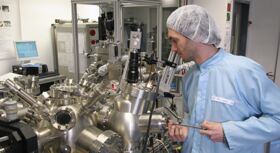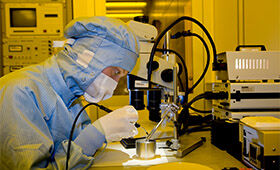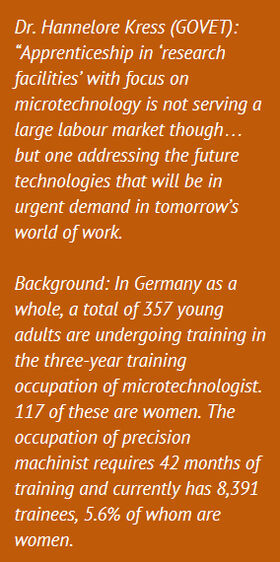GOVET to support the BMBF in the implementation of vocational education and training
On 10 December 2018, Federal Minister of Education and Research Anja Karliczek and her Russian counterpart Mikhail Kotyukov met in Moscow to sign the “German-Russian Road Map for Cooperation in Education, Science, Research, and Innovation”. This agreement defines joint work packages and strategic measures for collaboration over the next ten years.

“Science builds bridges, particularly in times that are politically challenging,” said Federal Minister for Education and Research Anja Karliczek on 10 December 2018 at the signing of a German-Russian Road Map in Moscow. “The Road Map being signed today includes a Young Talent Programme. This initiative is important to me, especially in today’s world. Those who have studied and worked in the other country will have a better understanding of each other. The Young Talent Programme will create many new bridges between our societies.” she emphasized. Together with her Russian counterpart Mikhail Kotyukov, Minister Karliczek set out the strategic cooperation between the two countries over the next ten years in the fields of education, science, research, and innovation with her signature. Specifically, areas of focus include continuing training and networking between researchers and trainees in occupations providing necessary technical support at major research facilities.

Both countries have a long history of successfully engaging with further international partners in the development and construction of large-scale scientific research equipment. Behind Germany, Russia is the second most important shareholder in the “European XFEL” X-ray Free Electron Laser project near Hamburg and in the “FAIR” particle accelerator in Darmstadt, the latter still being under construction.
Well-trained skilled workers are required for the establishment, operation, maintenance, and safety of jointly operated facilities and for the provision of technical support to researchers. Within the scope of the German-Russian Road Map, GOVET will act on behalf of the BMBF to advise the stakeholders involved and to assist with the training of young Russian workers via various projects. Areas of training at the research infrastructures in Germany include IT, mechatronics, electronic engineering, industrial and construction mechanics, laboratory occupations, precision machining, and micro technology.

In order to explore occupational profiles and help identify research establishments committed to offering training that may be suitable for involvement in German-Russian VET cooperation, GOVET supported the BMBF by organising several meetings with experts. One of these took place at the Ferdinand Braun Institute in Berlin, where compound semiconductors are used to conduct research into electronic and optical components, modules, and systems. Fields of application include medical engineering, precision metrology, sensor technology, and motor vehicle safety. The discussions held with training managers, trainees and technicians made it clear just how important skilled workers are for researchers. Constructive international cooperation in vocational education and training assists scientists working in high-tech areas such as micro technology and precision machining. It is also helpful for the development and construction of prototypes, the setting up of experiments, and the production of data chips. Such cooperation—which may also take the form of spin-offs and start-ups—have obvious significance for trade and industry. The delegation examined the two occupational profiles in detail.
Part of the exploration was the visit of the renowned Lise Meitner Upper Secondary School Centre in order to look at the school-based part of training, The School specialises in chemistry, physics, biology, and information technology. Insights were gained into the complexity of the occupational field of micro technology. Teaching staff stressed the shortage of skilled workers in this area. Concentrated efforts are already being made to present these occupations and technical laboratories as attractive options directly to schools across Berlin and Brandenburg.

A subsequent visit to the Helmholtz Centre for Materials and Energy in Berlin, which provides training for the “BESSY II” research infrastructure, also made it apparent that a constant and well-trained core of technical staff at such facilities have a positive impact on success and utilisation. The Helmholtz Centre in Berlin (HZB) researches complex materials systems in order to provide an environmentally and sustainable supply of energy. Occupations in which the HZB offers training include precision machinist, mechatronics fitter, and IT systems integrator. Human resources management sees the research facility as a training centre and views itself as a service provider for researchers. The focus is on safety aspects and systematic IT back-ups as well as on technical quality. Constructive dialogue between scientific research, engineering and technology in the development of new instruments is an important location factor from the perspective of the Human Resources Department.
The initial impressions gained of training in this special area of major research facilities will now help to inform further considerations regarding vocational education and training components for the German-Russian Road Map. An exploratory trip to Russia will serve to expand knowledge on vocational education and training at sensitive high technology facilities.